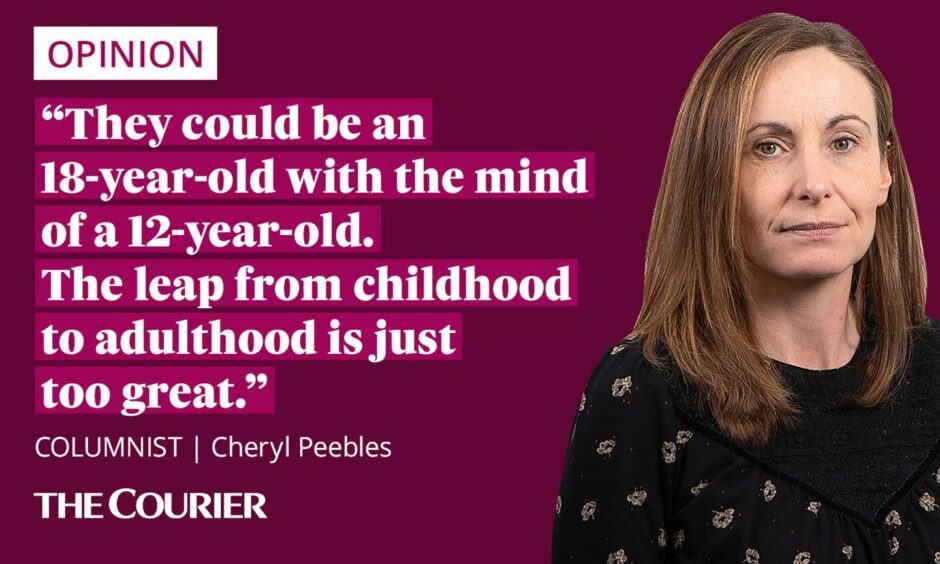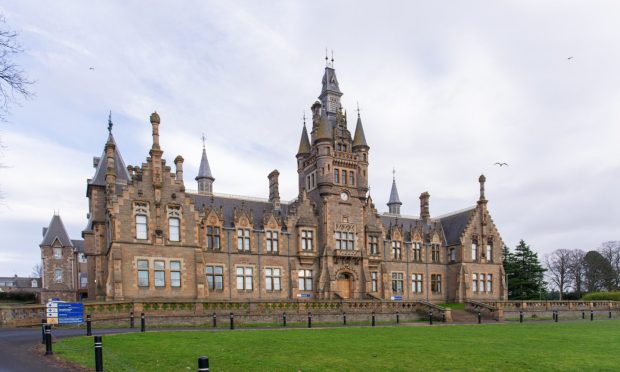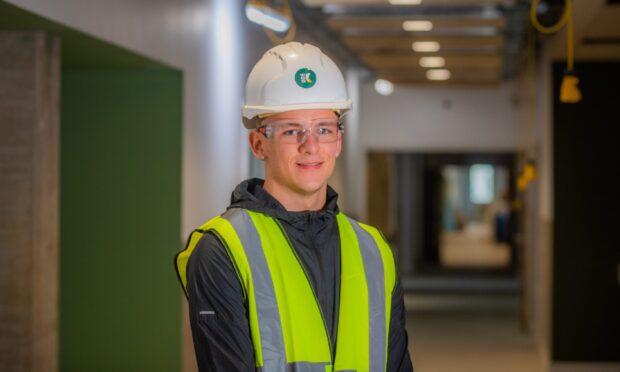Leaving school and stepping out into the big, wide world is a massive step.
It’s exciting, it’s daunting, it’s the first time in your life you can truly tread your own path.
But think about how that feels when you’re a teenager with special needs.
Perhaps you have autism, a learning disability.
Instead of the world being your oyster, it could feel like your abyss.
For those young people who depend on the routine, the structure that school provides, leaving the classroom behind is not just daunting, it can be terrifying and disorienting.
Last week we told the story of 17-year-old Liam Thomson, from Angus, who is thriving as a pupil of the enhanced support area at Craigie High School, in Dundee.

But refused the college place anticipated for him, his journey in education is coming to an end and his parents Gill and Michael fear for his future.
And they’re far from alone.
Liam’s story prompted a flood of tales from other families who face or have faced similar crises.
Support may still be there for them as adults but many families feel it’s not the right support.
Colleges including Dundee and Angus, UHI Perth and Fife offer courses for young people with special needs.
So while the comfort blanket of school may be lifted, they remain in an education setting and among peers roughly of their own age.
They will continue to learn the life skills they, as teenagers, are still acquiring and desperately need if they are to live meaningful lives with as much independence as possible.
Is adult day care the right place for a teenager?
But not everyone will get one of those college places.
That could result in parents having to give up work to care for them at home.
Or they could go to one of Tayside and Fife’s many adult day care services. While they would no doubt be well cared for there, they would suddenly be among adults much older than themselves.
And the nature of many teenagers’ disabilities or conditions mean they are far less mature than their actual age.
They could be an 18-year-old with the mind of a 12-year-old.
For many young people with special needs, there’s still a lot of learning to be done when they reach the end of S6.
The leap from childhood to adulthood is just too great.
Going to college could be that stepping stone.
As Liam’s mum said: “There’s a huge gap and I feel like these three years are getting swept under the carpet.”
Other parents who reacted claimed young disabled people are forgotten about as soon as they leave the classroom, discriminated against and seen as a problem to be dealt with.
And there were accounts of how others had taken it into their own hands to ensure care, social interaction and a purpose in life for their young adults.
Harnessing their superpowers
Gayle Nelson’s son was among those lucky to be offered a college place in Fife.
But she was worried about what came next.
Would his days be filled with outings or token voluntary work simply to occupy his time?
Determined Laurie would have purpose to his life she and a friend in similar circumstances set up a food production operation.
Several years on The Sunshine Kitchen is an established supplier of produce, including soup, cakes and chutneys, to local cafés and restaurants and trades at food and farmers’ markets.
It has a team of more than 20 young people with learning disabilities who have become skilled at growing, cooking and marketing their own produce.
Each week they go to work and create something they can be proud of and which is consumed and enjoyed by paying customers.
That’s thanks to the innovation of two worried mums who didn’t want their children to be forgotten, who wanted a future for them as valuable members of society.
But Laurie’s success story shouldn’t be the exception.
And it shouldn’t have depended on his mum being its author.
People like Liam and Laurie need and deserve the chance to reach their full potential.
Their special needs could also be their superpowers and we need to ensure the right support is there to help them harness them and take flight.












Conversation